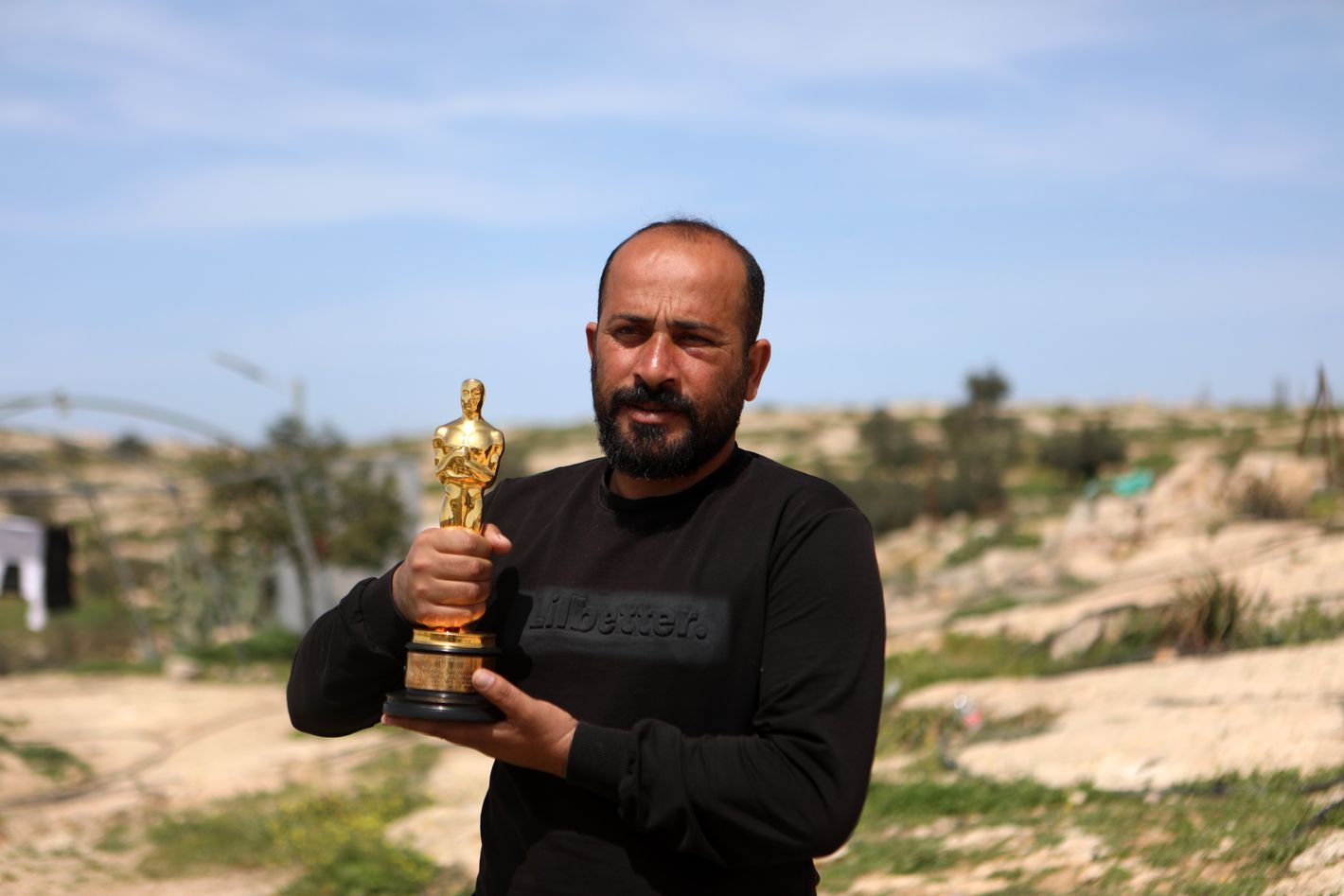Hamdan Ballal Reflects on His Arrest: ‘Don’t Turn Away Now’


One month ago, on March 25, No Other Land director Hamdan Ballal was “brutally attacked” in his home, then arrested and held overnight by the Israeli army after a conflict between Palestinians and settlers in the Masafer Yatta region of the West Bank escalated. Only a few weeks prior to his arrest, Ballal and his fellow directors Basel Adra, Yuval Abraham, and Rachel Szor took the stage at the Academy Awards to accept the award for Best Documentary. But “in an instant, it was as if the Oscars had never happened, as if the award didn’t mean anything,” Ballal writes in an April 25 New York Times op-ed reflecting on the last few months. “Our struggle and our suffering were on display, and the world was watching — and supporting us,” Ballal wrote of taking the stage at the Oscars. “For years, we have been desperately trying to make our names and our struggle known. Now we had succeeded beyond anything any of us could have ever imagined.”
“Even though our movie received global recognition, I felt I had failed — we had failed — in our attempt to make life better here,” he continued. In the aftermath of Ballal’s arrest, the Academy of Motion Picture Arts and Sciences put out a fuzzily worded statement that affirmed, if nothing else, that many people had different opinions, but also that people were allowed to voice those opinions. “Understandably, we are often asked to speak on behalf of the Academy in response to social, political and economic events. In these instances, it is important to note that the Academy represents close to 11,000 global members with many unique viewpoints,” it read, without mentioning Ballal by name. In response, a number of Academy members (including but not limited to Mark Ruffalo, Todd Haynes, and Penélope Cruz) signed an open letter criticizing the lack of support. The Academy subsequently followed up with an amended statement that apologized to Ballal by name.
Ballal’s essay, titled “My Oscar For ‘No Other Land’ Didn’t Protect Me From Violence,” ignores the Academy’s infighting to reflect on his fears during his arrest: the wellness of his wife and three children, the health and beauty of the land, and, as he was beaten, the ways his film’s success mattered and didn’t. “When we are unable to shepherd and farm because of constantly encroaching settlements and ever more aggressive settlers and soldiers, we lose our income, our source of food, our traditions and our way of life. Fear is a constant, from morning to night,” he writes. The press attention in the aftermath of his arrest, however, gave him hope that the world was watching the violence in the West Bank unfold with a closer eye. As a documentarian, Ballal relies on watching and witnessing. At the end of his essay, he calls on the reader to act as their own documentarian, adding, “Don’t turn away now.”
Related

Latest News
For Sale! 2016 Sea Ray 350 Sundancer – $180,000
Reel Deal Yacht is pleased to feature a meticulously maintained 2016 Sea...
Unforgettable Summer Staycations in Devon: Top Destinations for the Perfect Getaway
Discovering Devon: An Idyllic Escape on Home Soil Devon, a picturesque county...
Even Wealthy Individuals Hesitate to Pay for Monthly Heated Seat Subscriptions
Buyers of Premium Vehicles Don’t Want to Pay Recurring Subscriptions In an...
Wrexham seals third straight promotion and will play in English soccer’s second tier
Wrexham fans ignored the warnings. They were always going to. By the...
Shedeur Sanders will be part of the competition for Browns’ QB spot despite drop in NFL draft
Andrew Berry said Friday night that it was less about where Shedeur...














Leave a comment